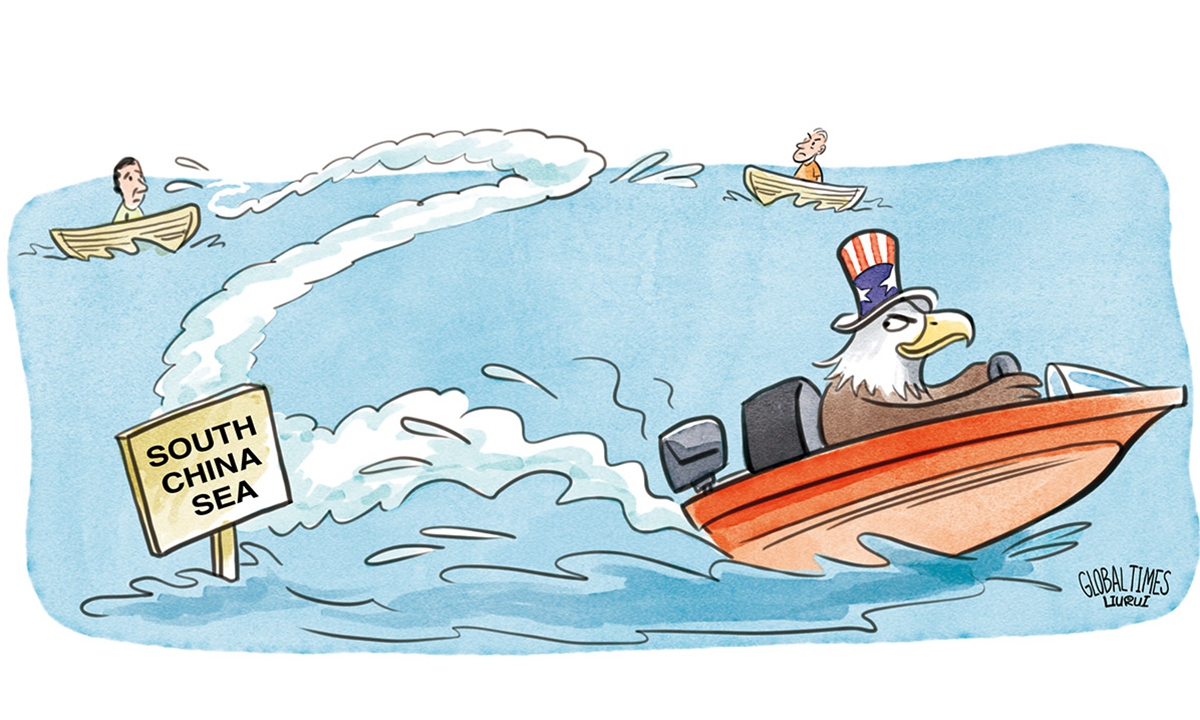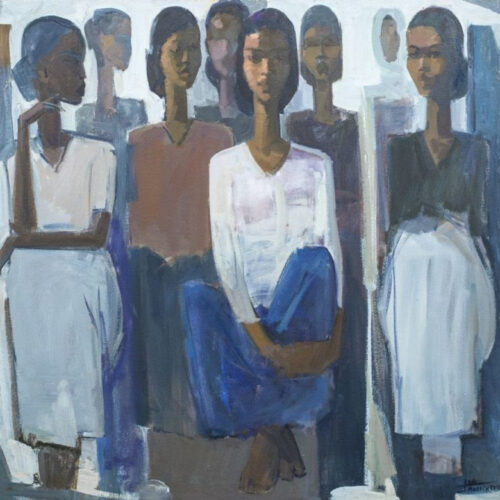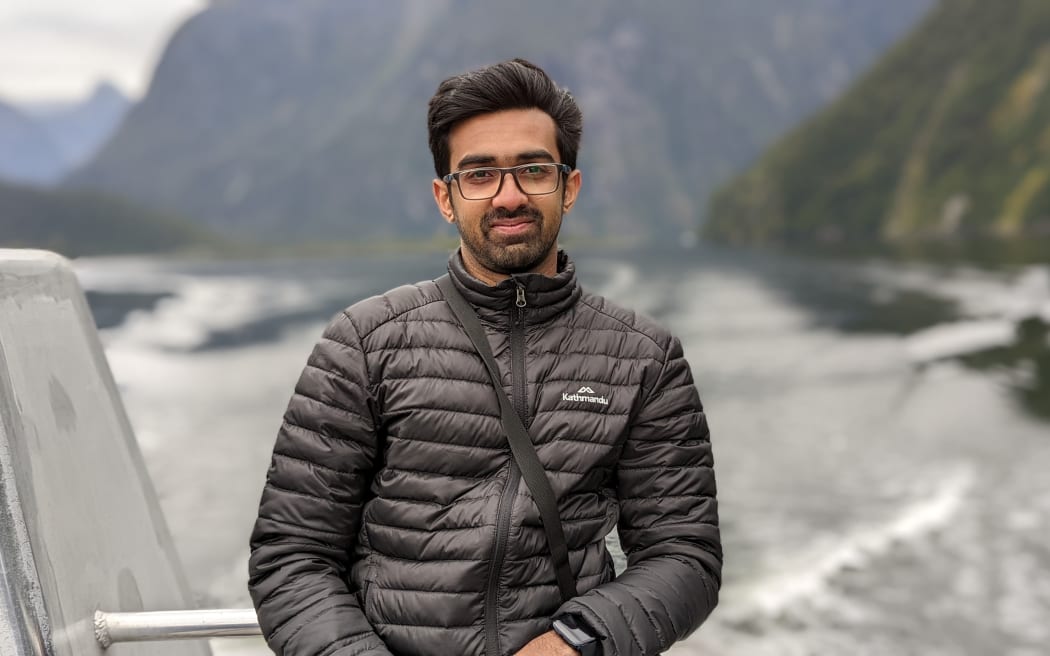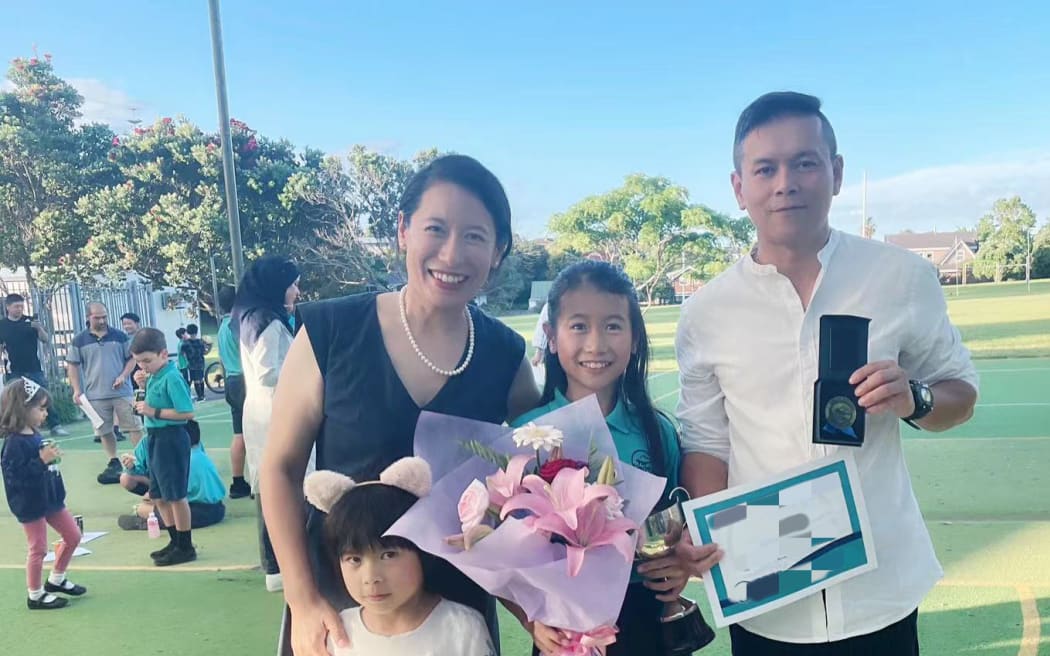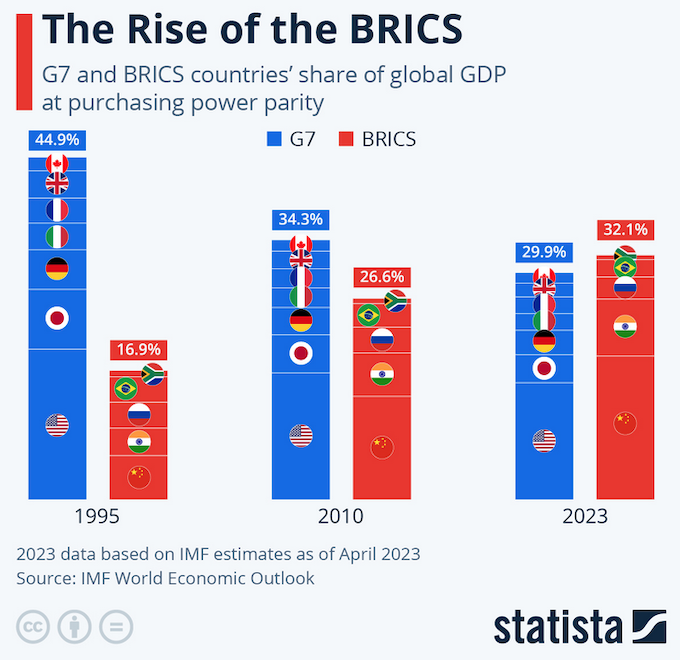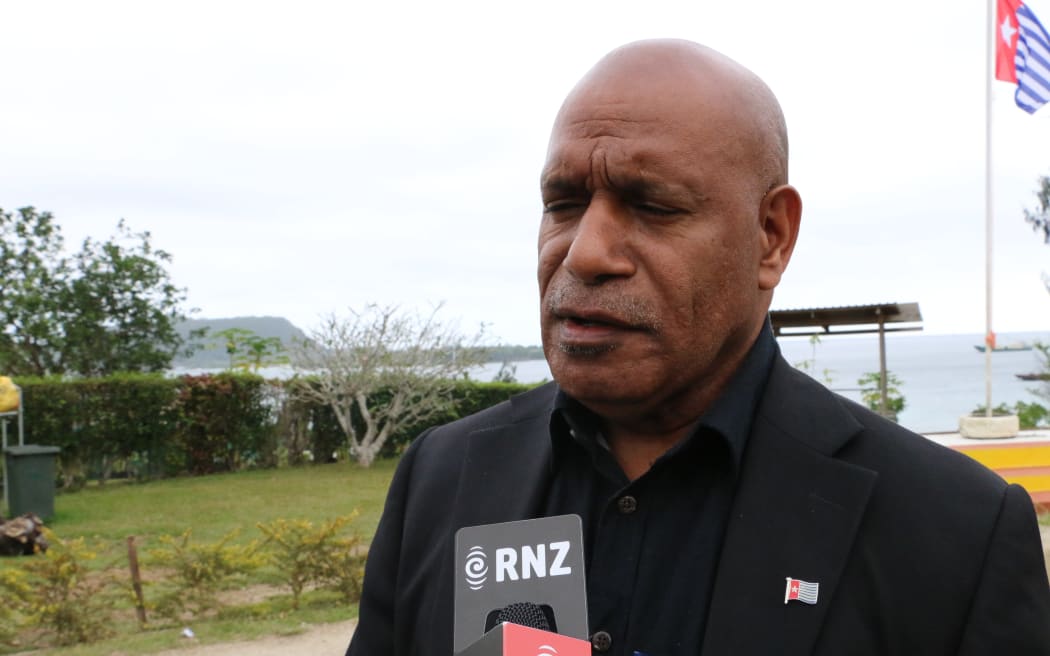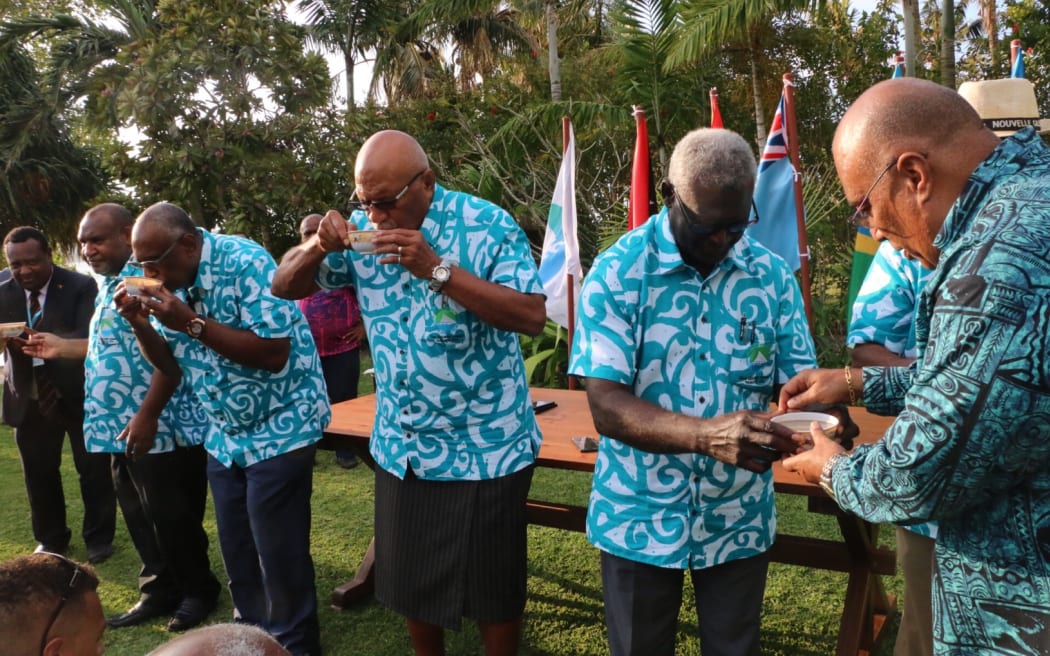The West is writing a script about its relations with China as stuffed full of misdirection as an Agatha Christie novel.
In recent months, US and European officials have scurried to Beijing for so-called talks, as if the year were 1972 and Richard Nixon were in the White House.
But there will be no dramatic, era-defining US-China pact this time. If relations are to change, it will be decisively for the worse.
The West’s two-faced policy towards China was starkly illustrated last week by the visit to Beijing of Britain’s foreign secretary, James Cleverly – the first by a senior UK official for five years.
While Cleverly talked vaguely afterwards about the importance of not “disengaging” from China and avoiding “mistrust and errors”, the British parliament did its best to undermine his message.
The foreign affairs committee issued a report on UK policy in the Indo-Pacific that provocatively described the Chinese leadership as “a threat to the UK and its interests”.
In terminology that broke with past diplomacy, the committee referred to Taiwan – a breakaway island that Beijing insists must one day be “reunified” with China – as an “independent country”. Only 13 states recognise Taiwan’s independence.
The committee urged the British government to pressure its Nato allies into imposing sanctions on China.

The UK parliament is meddling recklessly in a far-off zone of confrontation with the potential for incendiary escalation against a nuclear power, a situation unrivalled outside of Ukraine.
But Britain is far from alone. Last year, for the first time, Nato moved well out of its supposed sphere of influence – the North Atlantic – to declare Beijing a challenge to its “interests, security and values”.
There can be little doubt that Washington is the moving force behind this escalation against China, a state posing no obvious military threat to the West.
It has upped the stakes significantly by making its military presence felt ever more firmly in and around the Straits of Taiwan – the 100-mile wide waterway separating China from Taiwan that Beijing views as its doorstep.
Senior US officials have been making noisy visits to Taiwan – not least, Nancy Pelosi last summer, when she was house speaker. Meanwhile, the Biden administration is showering Taiwan with weapons systems.
If this weren’t enough to inflame China, Washington is drawing Beijing’s neighbours deeper into military alliances – such as Aukus and the Quad – to isolate China and leave it feeling threatened. The Chinese president, Xi Jinping, describes this as a policy of “comprehensive containment, encirclement and suppression against us”.
Last month, President Biden hosted Japan and South Korea at Camp David, forging a trilateral security arrangement directed at what they called China’s “dangerous and aggressive behavior”.
Meanwhile, the Pentagon’s “Pacific Defence Initiative” budget – chiefly intended to contain and encircle China – just keeps rising.
In the latest move, revealed last week, the US is in talks with Manila to build a naval port in the northernmost Philippine islands, 125 miles from Taiwan, boosting “American access to strategically located islands facing Taiwan”.
That will become the ninth Philippine base used by the US military, part of a network of some 450 operating in the South Pacific.
So what’s going on? Is Britain – along with its Nato allies – interested in building greater trust with Beijing, as Cleverly argues, or backing Washington’s escalatory manoeuvres against a nuclear-armed China over a small territory on the other side of the globe, as the British parliament indicates?
Inadvertently, the foreign affairs committee’s chair, Alicia Kearns, got to the heart of the matter. She accused the British government of having a “confidential, elusive China strategy”, one “buried deep in Whitehall, kept hidden even from senior ministers”.
And not by accident.
European leaders are torn. They fear losing access to Chinese goods and markets, plunging their economies deeper into recession after a cost-of-living crisis precipitated by the Ukraine war. But most are even more afraid of angering Washington, which is determined to isolate and contain China.
That divide was highlighted by French President Emmanuel Macron following a visit to China in April, when he urged “strategic autonomy” for Europe towards Beijing.
“Is it in our interest to accelerate [a crisis] on Taiwan? No. The worse thing would be to think that we Europeans must become followers on this topic and take our cue from the US agenda and a Chinese overreaction,” he said.
Macron soon found himself roundly rebuked in Washington and European capitals.
Instead, a dirty double game is being played. The West makes conciliatory noises towards Beijing, while its actions turn ever more belligerent.
Cleverly himself alluded to this deceit, observing of relations with China: “If there is ever a situation where our security concerns are at odds with our economic concerns, our security concerns win out.”
After Ukraine, we are told, Taiwan must be the locus of the West’s all-consuming security interest.
Cleverly’s meaning is barely veiled: Europe’s clear economic interests in maintaining good relations with Beijing must be suborned to Washington’s more malevolent agenda, masquerading as Nato security interests.
Forget Macron’s “autonomy”.
Notably, this game of misdirection draws on the same blueprint that shaped the long build-up to the Ukraine war.
Western politicians and media repeat the preposterous claim that Russia’s invasion of Ukraine was “unprovoked” only because they created a cover story beforehand, as they now do with China.
I have set out in detail before how these provocations unfolded. Bit by bit, US administrations eroded Ukrainian neutrality and incorporated Russia’s large neighbour into the Nato fold. The intention was to covertly turn it into a forward base, capable of positioning nuclear-tipped missiles minutes from Moscow.
Washington ignored warnings from its most senior officials and Russia experts that cornering Moscow would eventually provoke it into a pre-emptive strike against Ukraine. Why? Because, it seems, that was the goal all along.
The invasion provided the pretext for the US to impose sanctions and wage its current proxy war, using Ukrainians as foot soldiers, to neutralise Russia militarily and economically – or “weaken” it, as the US Defence Secretary Lloyd Austin explicitly terms Washington’s key aim in the Ukraine war.
Moscow is seen as an obstacle, alongside China, to the US maintaining “full-spectrum global dominance” – a doctrine that came to the fore after the Soviet Union’s collapse three decades ago.
Using Nato as sidekick, Washington is determined to keep the world unipolar at all costs. It is desperate to preserve its global, imperial military and economic might, even as its star wanes. In such circumstances, Europe’s options for Macron-style autonomy are non-existent.
The public’s continuing ignorance of Nato’s countless provocations against Russia is hardly surprising. Reference to them is all but taboo in Western media.
Instead, the West’s belligerent manoeuvrings – as with those now against China – are overshadowed by a script that trumpets its faux-diplomacy, supposedly rebuffed by “madman” Russian President Vladimir Putin.
This disingenuous narrative was typified by western double-dealing over accords signed in 2014 and 2015 in the Belarussian capital Minsk – after negotiations between Moscow and Kyiv to stop a bloody civil war in Ukraine’s eastern region of Donbass.
There, Ukrainian ultra-nationalists and separatist Ukrainians of Russian origin began facing off in 2014, immediately after yet more covert meddling. Washington assisted in the overthrow of an elected Ukrainian government sympathetic to Moscow. In response, ethnic Russians demanded greater autonomy from Kyiv.
The official story is that, far from inflaming conflict, the West sought to foster peace, with Germany and France brokering the Minsk accords.
One can argue about why those agreements failed. But following Russia’s invasion, a disturbing new light was shed on their context by Angela Merkel, German chancellor at the time.
She told Die Ziet newspaper last December that the 2014 Minsk agreement was less about achieving peace than “an attempt to give Ukraine time. It also used this time to get stronger, as you can see today… In early 2015, Putin could easily have overrun them [areas in Donbas] at the time. And I very much doubt that the Nato countries could have done as much then as they do now to help Ukraine.”
If Russia could have overrun Ukraine at any time from 2014 onwards, why did it wait eight years, while its neighbour grew much stronger, assisted by the West?
Assuming Merkel is being honest, Germany, it seems, never really believed the peace process it oversaw stood a chance. That suggests one of two possibilities.
Either the initiative was a charade, brokered to buy more time for Ukraine to be integrated into Nato, a path that was bound to lead to Russia’s invasion – as Merkel herself acknowledges. Indeed, she accepts that Ukraine’s accession process into Nato launched in 2008 was “wrong”.
Or Merkel knew that the US would work with Kyiv’s new pro-Washington government to disrupt the process. Europe could do little more than delay an inevitable war for as long as possible.
Neither alternative fits the “unprovoked” narrative. Both suggest Merkel understood Moscow’s patience would eventually run out.
The theatre of the Minsk accords was directed at Moscow, which delayed invading on the assumption the talks were in good faith, but also at western publics. When Russia did finally invade, they could be easily persuaded Putin never planned to embrace western “peace” overtures.
As with Ukraine, the cover story concealing the West’s provocations towards China has been carefully directed from Washington.
Europeans like Cleverly are parading around Beijing to make it look like the West desires peaceful engagement. But the only real engagement is the crafting of a military noose around China’s neck, just as a noose was crafted earlier for Russia.
The security rationale this time – of protecting far-off Taiwan – obscures Washington’s less palatable aim: to enforce US global dominance by smashing any economic or technological threat from China and Russia.
Washington can’t remain military top dog if it doesn’t also maintain a chokehold on the global economy to fund its inflated Pentagon budget, equivalent to the combined spending of the next 10 nations.
The dangers to Washington are only underscored by the rapid expansion of Brics, a bloc of emerging economic powers headed by China and Russia. Six new members will join the current five in January, with many more waiting in the wings.
An expanded Brics offers new security and economic axes on which these emerging powers can organise, profoundly weakening US influence.
The new entrants are Argentina, Ethiopia, Egypt, Iran, Saudi Arabia and the United Arab Emirates. China already brokered an unexpected reconciliation between historic foes Iran and Saudia Arabia in March, in preparation for their accession.
Brics+ will only strengthen their mutual interests.
That will be no comfort in Washington. The US has long favoured keeping the two at loggerheads, in a divide-and-rule policy that rationalised its continuous meddling to control the oil-rich Middle East and favoured Washington’s key regional military ally, Israel.
But Brics+ won’t just end the US role in dictating global security arrangements. It will gradually loosen Washington’s stranglehold on the global economy, ending the dollar’s dominance as the world reserve currency.
Brics+ now controls a majority of the world’s energy supplies, and some 37 percent of global GDP, more than the US-led G7. Opportunities to trade in currencies other than the dollar become much easier.
As Paul Craig Roberts, a former official in Ronald Reagan’s treasury, observed: “Declining use of the dollar means a declining supply of customers for US debt, which means pressure on the dollar’s exchange value and the prospect of rising inflation from rising prices of imports.”
In short, a weak dollar is going to make bullying the rest of the world a considerably more difficult prospect.
The US isn’t likely to go down without a fight. Which is why Ukrainians and Russians are currently dying on the battlefield. And why China and the rest of us have good reason to fear who may be next.
• First published at Middle East Eye
This post was originally published on Dissident Voice.








